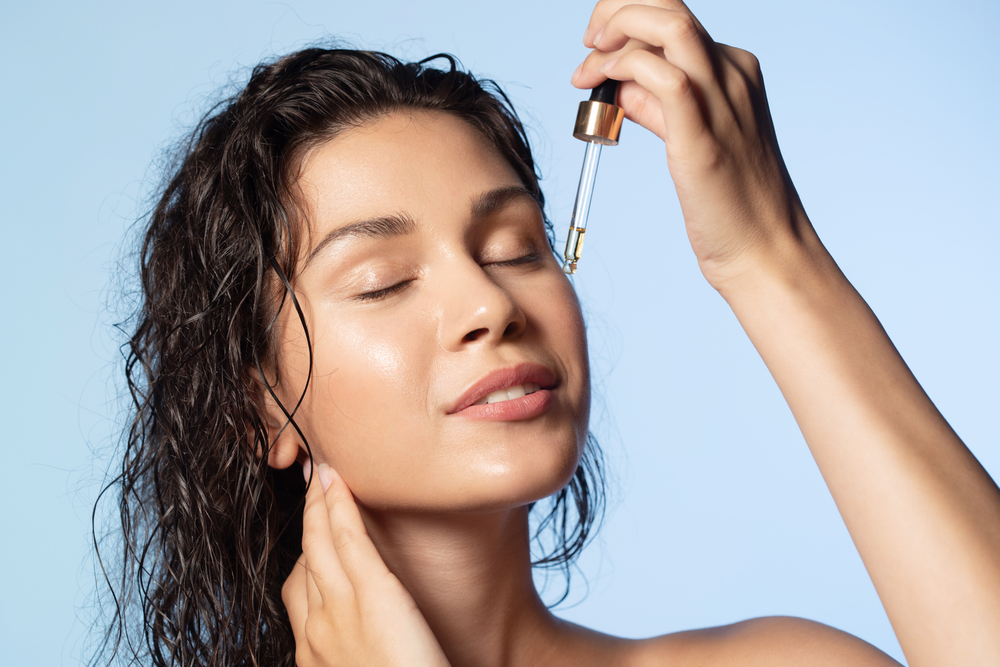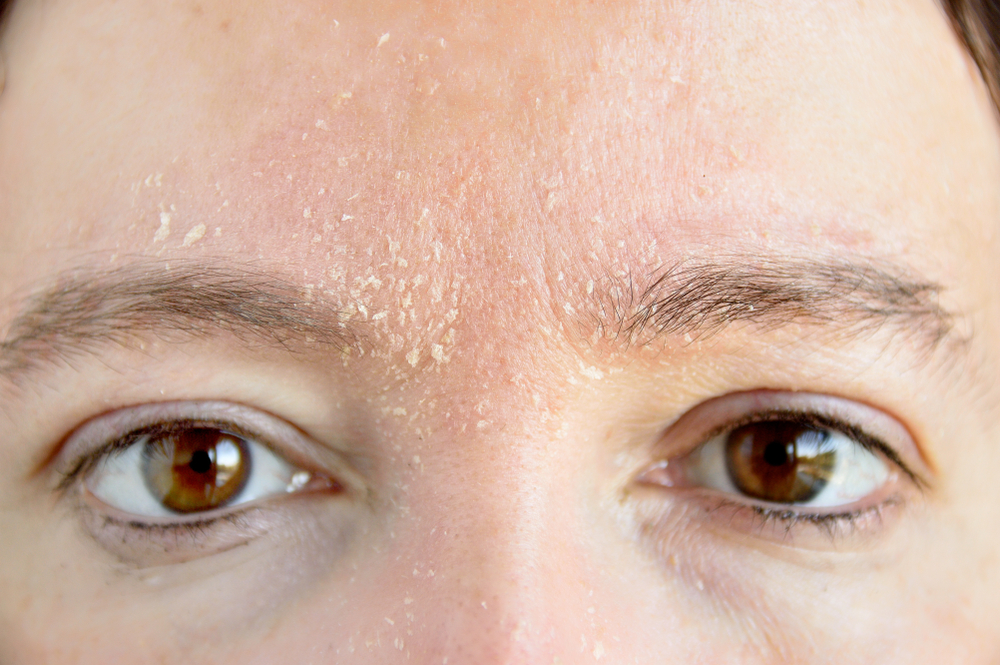Blog
Welcome to FaceForward
Get the scoop on all things beauty, wellness, and skincare.

The importance of the skin’s microbiome has been a hot topic in the beauty industry for some time now.
More people are realizing why caring for your skin microbiome––or at least leaving it to do its thing––is vital, especially if they want to achieve a clear, glowing complexion.
If you’re wondering whether or why the skin microbiome is deserving of all the hype, this article is for you.
Below we discuss everything you need to know about the role your skin microbiome plays skin health, as well as the best practices to properly maintain it.
The microbiome—or skin flora—is a community of microorganisms that reside on the outer surface of your skin. This community contains billions of bacteria, fungi, and viruses.
While this sounds like creepy crawlies you might want to clean or remove, the exact opposite is true. Your skin is host to a diverse millions of microorganisms. These microorganisms are what dermatologists call “good bacteria.” They help maintain the skin’s health and protect it from harmful external factors.
In fact, if you want your skin to look and feel its best, it should be loaded with all of these organisms. At least, the right ones.
These organisms benefit your complexion by:
Your skin microbiome can also vary depending on region of your body. The bacteria that live in your warm armpit are different from those on the surface of your arm, and for good reason based on the environment.
 Why Is a Healthy Skin Microbiome Important?
Why Is a Healthy Skin Microbiome Important?Although there is still a lot of research that has to be done to fully understand our skin microbiome, most dermatologists agree that a healthy microbiome is vital for glowing, radiant skin.
A healthy skin microbiome helps our skin fully absorb the vitamins and nutrients in our skincare products and from natural sources, maximizing their benefits.
For example, topical active ingredients like vitamin C and clindamycin can only be fully absorbed if the skin’s microbiome is healthy. When the microbiome is disrupted, and bacteria is damaged or wiped from the skin’s outer surface, it can be a huge detriment to your skincare routine,
With fewer “good bacteria,” the skin is unable to absorb necessary micronutrients, in which case they can’t do their job to help keep your complexion clear and healthy.
A healthy microbiome also helps the skin retain the moisture it needs to be strong and healthy.
The organisms in your skin microbiome work together to keep temperatures consistent throughout the skin, which prevents water from evaporating unnecessarily. When the skin needs more moisture, the natural bacteria in the microbiome can also draw water from the air and into the skin!
This helps maintain and strengthen the skin barrier, the protective layer that prevents infection and environmental damage.
Organisms in the microbiome are constantly working to keep the skin healthy as a byproduct of their existence. They can also send warning signs to the body to alert it of infection or skin damage.
These signs can trigger an inflammatory response—the body’s natural reaction to an irritant. Inflammatory responses can manifest as redness, pain, and swelling on the skin.
While an inflammatory reaction is necessary to prompt wound healing in the short term, it can damage your skin if you don’t address it. Over time, long-term inflammation can deplete the immune response, leaving your skin more vulnerable to UV radiation, pollution, and other pathogens.
Chronic inflammation can also cause more frequent infections on the skin.
Luckily, a healthy microbiome can help control inflammatory responses. By keeping unnecessary triggers at bay, the microbiome can keep the skin’s immune system stable and healthy. Strains of Staphylococci epidermis bacteria found in the microbiome also work to enhance and strengthen the skin barrier.
Your gut health plays a role in skin health too (read more here).
Inflammatory skin conditions like acne, eczema, and dermatitis have been linked to poor gut microbiome health.
These problems typically develop when the microbiome’s organisms struggle to maintain a stable environment. To protect itself, the skin will trigger immune responses that can manifest as inflammation. However, when our microbiome is functioning optimally, our skin is better able to combat breakouts, dryness, and irritation.
This also helps reduce inflammation and avoids long-term damage to the skin.
While the skin microbiome is vital for optimal skin health, it’s also delicate and easy to disrupt.
In this section, we’ll take a closer look at the most common factors that can damage the skin microbiome.
Our modern lifestyle hasn’t evolved in favor of the skin’s microbiome. Some dermatologists agree that optimal function of the microbiome is strongly tied to gut health.
Like the microbiome on the surface of your skin, the microbiome in your gut requires specific strains of good bacteria to regulate acid, process food, and keep our immune system functioning properly.
When our diets consist of foods with chemical additives, refined carbohydrates, excess sugar, and saturated fats, the bacteria in our gut can struggle to break them down. This can trigger the development of harmful bacteria that can cause inflammation in the body and skin. Antibiotics can also contribute to destabilizing your gut.
Other lifestyle factors like using nicotine products can contribute to the development of free radicals at the skin and cause oxidative stress.
Free radicals also break down elastin fibers, causing the skin to sag and eventually fine lines to form.
Products with harsh chemical ingredients often strip the skin of its natural sebum (oil) and moisture.
Not only are these products more likely to dry out the skin, but they may also kill vital organisms in the skin microbiome. When our skin can’t replenish the moisture it’s lost, it’s less able to protect itself from external stressors like sun damage, free radicals, some bacteria, and even pollution.
A healthy skin microbiome also helps protect against harmful UV radiation — the primary culprit behind wrinkles, dark spots, hyperpigmentation, and other signs of photoaging. Still, it’s no substitute for using a sunscreen with a high SPF.
If your skin microbiome is frequently exposed to excess radiation without the additional support of sunscreen, it may start to break down and lose some of its protective properties.
UV radiation also reduces the diversity of the bacteria on our skin.A diverse microbiome is important because each strain has a unique function. So when our microbiome contains fewer strains of bacteria, its performance can suffer.
Without the protection of the microbiome, UV rays can cause dryness, irritation, and hyperpigmentation.
Disruptions to the microbiome are often associated with compromised skin barrier function.
External stressors that damage the skin barrier also affect the microbiome. If this microbiome is damaged, it’s unable to assist in preventing pathogenic bacteria—these are harmful organisms that can cause infections—and fungal rashes from forming on the skin.
When depleted or wiped out, the microbiome can continue to break down and can cause more severe skin conditions. Let’s take a closer look at what those are.
Eczema is a form of atopic dermatitis that results in dehydrated and irritated skin, which can lead to inflammation. It’s a condition that has been linked to the loss of skin barrier function and a damaged microbiome.
This causes sensitive skin that is more prone to infection. It also struggles to rehydrate itself since the skin can’t maintain moisture levels when the microbiome is compromised.
 Acne
AcneAcne is a common skin condition that develops when pores on the skin become clogged with oil and dead skin cells.
This causes whiteheads and blackheads to form on the skin. In severe cases, large cysts and scars can also develop.
Acne often results from bacterial infection from the P. acnes bacteria. This bacteria causes acne to become inflamed and painful to the touch.
Research suggests that the microbiome’s S. epidermidis bacteria supports the skin in repairing and healing acne lesions.
Some acne treatments are made up of harsh chemicals and antibiotics that can be damaging to the natural microbiome. These products can sometimes kill the bacteria that can actually reduce acne.
This means that acne-prone skin doesn’t have enough “good bacteria” to fight and kill harmful organisms that cause infection.
Rosacea develops when broken blood vessels become visible on the face. This results in a flushed or red appearance and sometimes pus-filled bumps on the skin.
This skin condition is often triggered by factors like extreme temperatures, harsh skin care products or cosmetics, and excessive sun exposure. Rosacea has also been linked to the absence of Staphylococus epidermidis (S. epidermidis).
This is an organism that lives in the microbiome and has some responsibility in protecting the skin from harmful bacteria and external factors. When the skin is frequently exposed to damaging elements without the protection of S. epidermidis, there is a higher likelihood it won’t be able to heal itself efficiently.
This can even lead to the skin becoming thinner, which makes blood vessels more visible.
Aging is a natural and unavoidable process. When the skin produces fewer new skin cells and less quickly, its ability to repair damage that contributes to signs of aging is reduced.
This is because there are fewer organisms to support the skin barrier and keep our complexion protected.
This includes bacteria that may contribute to reducing harmful elements from entering the skin and organisms that stimulate the production of collagen.
It can be challenging to know exactly what to do to take care of your skin microbiome.
Luckily, you can make a few easy changes to your lifestyle to support healthy skin.
In general, your skin microbiome (like most physiological systems) will benefit from a healthy lifestyle. This includes a good diet, exercising regularly, and reducing the use of nicotine products.
As we’ve said before, gut health has also been linked to a fully functioning microbiome. That’s why taking care of your gut is important for supporting healthier skin too.
Adjusting your diet to contain the following foods regularly, is a good place to start:
Many of these foods and ingredients stimulate the production of good bacteria in the gut, and they may contribute to skin microbiome health too.
Regular exercise is another great way to support your microbiome. Sweat contains antimicrobial peptides, short amino acid chains that serve as the building blocks for the skin.
Cutting back on nicotine products not only improves skin health broadly, but it can also ensure that you have less free radical exposure.
Not only will this help the bacteria of your microbiome flourish, but the fibers in the skin will be less prone to damage, and you’ll help prevent premature signs of aging.
When we experience high stress, our bodies release a hormone called cortisol. This hormone has been linked to:
Not only can stress cause various physical problems, but it can also contribute to inflammatory response and even eczema flare-ups.
Remember that the microbiome is partly responsible for the skin’s inflammatory response.
Regulating stress with exercise and hobbies can ensure that we keep cortisol low. This may improve both physical and mental health, and also supports a healthy microbiome.
The best way to restore and maintain a healthy microbiome is by investing in high-quality skincare products with the right ingredients.
Products containing skin-healing ingredients such as vitamin C, tretinoin, niacinamide, and azelaic acid are typically a good place to start.
These ingredients strengthen the skin, skin barrier, and skin cell turnover. They can also work alongside the naturally-occurring organisms on the skin to keep the microbiome functioning properly.
At Nava MD, we know how important quality ingredients are in maintaining healthy skin. That’s why our range of prescription and non-prescription products are formulated with ingredients like:
Not only are these ingredients proven to help clear and protect the skin, but they may also support a strong microbiome.
Making sure that your skin microbiome is functioning properly is no easy task. Luckily, there’s an easier way to achieve healthy and radiant skin.
At Nava MD, we make it simple to get the best skin care products and advice from licensed medical professionals.
Our ready-to-order formulas and prescription treatments are blended with ingredients like vitamin C or tretinoin that brighten skin and support a strong microbiome.
Complete our free online skin consultation to start your skincare journey, and if appropriate our clinicians can prescribe the right products for your skin concerns—all from the comfort of your own home.
The best part? We deliver straight to your door with free shipping. It’s like a dermatologist visit at home.
This article is intended for informational purposes only and should not be considered medical advice.
Consult a healthcare professional or call a doctor in the case of a medical emergency